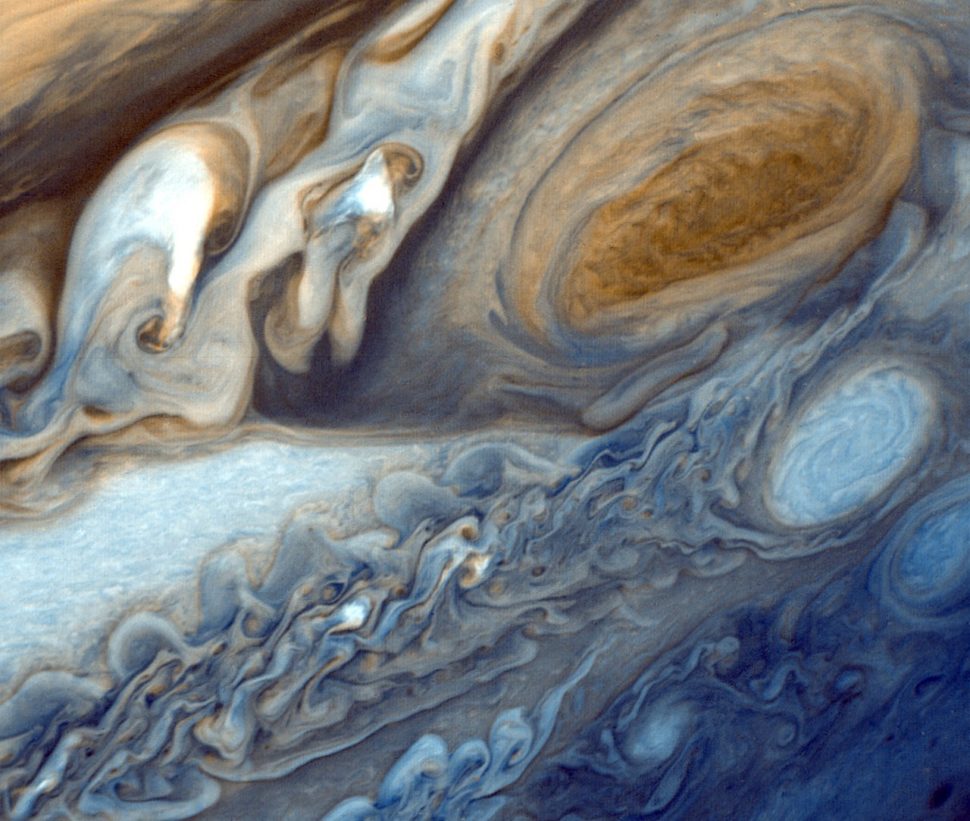Our home planet Earth has one and only moon, but not all planets in the Solar System are alike in this regard. IN fact, some have no moons while others rack up dozens.
Neither Mercury or Venus have any natural satellites. Mars has two moons with cool names: Phobos and Deimos. Saturn has 62 known moons.
The largest planet in the Solar System, Jupiter, also happens to have the most moons.
Jupiter’s most popular moons are Ganymede, Io, Europa, and Callisto — the largest and closest moons to the planet.
Since Galileo Galilei first observed these four moons in 1610, Jupiter’s official moon count has jumped several times.
Until last Summer, Jupiter had 67 confirmed moons. Then, astronomers discovered 12 new moons orbiting Jupiter, including one they called an “oddball” of a moon.
That brings the total of moons in the Jovian system to 79, 26 of which still have no official names.
Jupiter Needs to Name Five of its Newfound “Lovers”
Jupiter and its moons weren’t the initial research focus of scientists led by Carnegie Institution for Science astronomers.
They were originally hunting for the large and elusive Planet Nine, or Planet X, believed to lie somewhere beyond Pluto.
Now, they have another tough task on their hand: finding appropriate names for the newfound Jovian moons. To do this, they have asked for the public’s help.
Astronomy amateurs around the world can enter a contest and submit names for five of the newly-discovered Jupiter moons.
Launched by the Carnegie Institution for Science on February 21, 2019, the naming contest will close on April 15, 2019, so you still have a chance at submitting your entry.
Now, before you think of throwing in some fun monikers, like Moony McMoonface, know there are rules you should respect, if it wins, might get approved by the International Astronomical Union which have standards for naming astronomical objects.
So the names should be those of “characters from Roman or Greek mythology who were either descendants or lovers of the god known as Jupiter (Roman) or Zeus (Greeks).”
Like Zeus, his Greek equivalent, the Roman god Jupiter is known for his many illegitimate children. So, it’s befitting that most of the satellites orbiting the namesake planet bear names of the Jupiter’s extramarital lovers from Greek mythology.
There are a few other rules you may need to know about, which you can find described in the video below.
To submit your nominated Jupiter moons names, send a Tweet to @JupiterLunacy using 280 characters or fewer, or a short video, using the hashtag #NameJupitersMoons.
Read More: NASA Announces Nuclear-Powered Tunnelbot to Explore Jupiter’s Europa
















Comments (0)
Most Recent